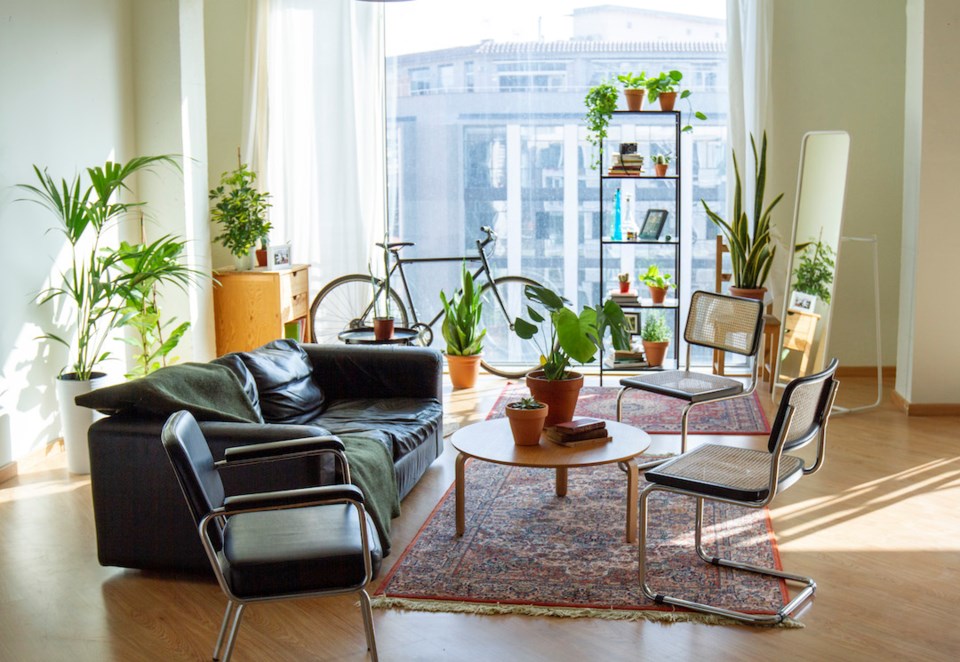Allowing a maximum of 30 commercial or unhosted short term rentals (STR) in Sechelt is slated to be part of 2022 community discussions on new rules for the industry. Hiking the annual business licence fees to $3,000 for those operations is another idea the municipality wants considered when consultations ramp up in the new year.
At a Dec. 22 committee of the whole meeting, staff were asked to prepare new draft STR regulations for council consideration early in 2022. Once council gives initial review to those changes, staff have recommended Sechelt’s neighbourhood associations and other community groups as well as the public be asked for their input. After consultation and refinement of the proposals, updated regulations are anticipated to go to council for consideration of adoption.
At the committee meeting, a proposed STR regulation framework developed by consulting firm EcoPlan International was reviewed. That document suggests classifying STR operations into three categories, depending on if the property is also used as a full-time residence. Those recommendations were based on background research and priorities identified at an earlier committee meeting.
The third category, labelled “commercial” in the framework, generated the bulk of the committee’s attention. The framework proposed that ranking be applied to STR properties that are not in use as a primary residence. The committee recommended Sechelt cap the number of those operations at 30. EcoPlan had opened the discussion with a suggestion that Sechelt allow only 10.
Mayor Darnelda Siegers suggested a commercial unit limit of between 50 and 100 properties. She stated that she would favour Sechelt allowing enough STR operations so that licensing fees collected generate sufficient revenues to operate its regulation program on a “cost-recovery basis." Those costs, in her view, would include hiring another bylaw officer, paying for additional building inspection and administrative duties and an estimated $16,000 annual fee for Sechelt to subscribe to an online STR host compliance service. She pointed out that EcoPlan’s research suggests that there were 249 STR units in Sechelt in 2021 and that two-thirds of these may meet the criteria to be classified as “commercial” under the proposed framework.
Coun. Matt McLean and Brenda Rowe lobbied to bring the commercial STR limit number down. Each noted that those types of operations are the ones that are currently creating “problems” for neighbours. McLean pointed out that they also do little to support the priorities of maintaining neighbourhood fit and protecting long-term housing availability that the committee identified as most important for any new STR regulation regime. Sechelt’s proposed regulation framework document states that for all STRs, “this use shall not adversely affect the residential character of the neighbourhood, nor shall the use generate noise, glare, odors, smoke, excessive traffic, or other effects that unreasonably interfere with any person’s enjoyment of their residence.”
To help address STR regulation cost issues, the committee suggested annual business licence fees for commercially classified units be raised to $3,000. The current rate is $125. Siegers said the proposed new fee rate “is more in keeping with the level of revenue stream” those operations can generate, which EcoPlan estimated was in the range of $5,000 per month. The mayor also stated that such a change would take into consideration that those types of STRs are businesses operating on properties that pay residential rather than commercial property taxes. Coun. Tom Lamb noted “these operations place additional demands on community infrastructure and need to pay their own way."
Other proposed changes for commercial STRs would limit the number of guests on a property to six and require a local representative for the property be available to respond to concerns within 30 minutes of being contacted. It is also proposed that representatives' contact information for commercial classed operations be posted on the District of Sechelt website.
The proposed rule update framework lists two other STR categories that would apply to properties where a permanent resident, owner or otherwise, resides on-site. The first category would be for accommodation units provided within the primary residence and would reclassify spaces currently licensed as “bed and breakfast” operations. A limit of up to three STR rooms within a residence is proposed. Also included under that category would be renting out of an entire primary residence during a limited period of time, such as when the resident is away on holiday.
The second residential category would be for legally separated units on a property such as a suite or a secondary dwelling. Few changes are recommended for regulation for that type of STR, other than a suggested limit of one licence per property.
The issue of an initial registration or inspection fee for all STRs was also raised in the committee discussions. It was suggested that any such fee be set at a tiered level with commercial operations paying more than those operated by onsite residents. Mayor Siegers noted that type of fee could be used to offset the costs of safety inspections for units as they are licenced. Coun. Matt McLean voiced his opposition to that proposal. “Registration fees are disincentives,” he said. He stated that operators looking to save money will simply look to avoid that fee by not applying to licence their STR.
During committee discussion, it was noted that a transition period to allow STR operators to comply with any changes would be needed. It has been recommended that if regulation changes are adopted in 2022, they come into force in 2023.

